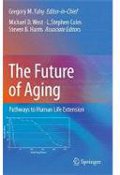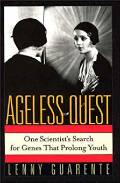Robert M. Sapolsky, Lewis C. Krey, and Bruce S. McEwen Propose the Glucocorticoid Cascade Hypothesis of Aging
 Who:Robert M. Sapolsky, Lewis C. Krey, Bruce S. McEwen
Who:Robert M. Sapolsky, Lewis C. Krey, Bruce S. McEwenWhen:January 01, 1986
Methods: Citing past research indicating that older mice release greater amounts of glucocorticoids in response to stress, and that this release precipitates a cascade effect of hypersecretion
Institution: The Salk Institute
Where: San Diego, California, U.S.A
In 1986 Robert Sapolsky, Lewis C. Krey, and Bruce McEwen published an 18 page review article in the Journal of Endocrinology outlining the Glucocorticoid Cascade Hypothesis of Aging. The hypothesis itself is not presented strictly as a cause of aging, but as a result of aging, which precipitates the aging process through a feedback loop, leading to further diseases of aging.
The feedback loop consists of stress induced corticosterone hypersecretion leading to neural receptor loss that leads to more corticosteron secretion. The feedback loop then precipitates the release of a cascade of hormones that lead to concomitant conditions which include: Immunosuppression, Muscle Atrophy, Osteoporosis, Hyperglycemia, Arteriosclerosis, and Steroid Diabetes.
Sapolsky et al. conclude their paper suggesting that stress induced glucorticords affect the rate of aging and "may also influence the capacity to withstand acute neuropathological insults."
It is our hope that the research described here will aid in understanding and tempering the excesses of aging which each of us must inevitably face.
References
- Sapolsky RM, Krey LC, McEwen BS. The neuroendocrinology of stress and aging: the glucocorticoid cascade hypothesis. Endocr Rev. 1986 Aug;7(3):284-301.




